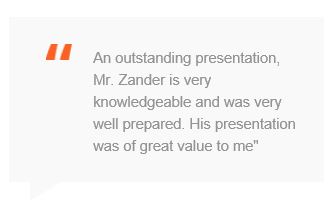![]()
Last Wednesday while speaking at CPE by the SEA, I was visiting with Kristi Ondracek, CFO TXCPA Houston about how AI will change the accounting field. In our discussion we wondered what AI would say about when to claim Social Security. We pulled up ChatGPT and asked when one should claim? The answer;
Deciding when to claim Social Security benefits is a personal decision that depends on several factors. Here are some considerations to help you make an informed decision:
- Full Retirement Age (FRA): Your FRA is the age at which you’re entitled to receive your full Social Security benefits. It depends on your birth year, and it ranges from 66 to 67. If you claim before reaching your FRA, your benefits will be permanently reduced. Delaying claiming past your FRA can increase your benefits.
- Financial Needs: Consider your financial situation and whether you need the income from Social Security immediately. If you have other sources of income and can afford to wait, delaying your claim may result in higher monthly benefits.
- Longevity: Consider your health, family history, and expected lifespan. If you anticipate living longer than average, delaying your claim can maximize your lifetime benefits. However, if you have health issues or expect a shorter lifespan, claiming earlier may be more beneficial.
- Work Status: If you claim Social Security before reaching your FRA and continue working, your benefits may be reduced if your earnings exceed certain limits. Once you reach your FRA, you can work and earn any amount without affecting your benefits.
- Spousal Benefits: If you’re married, consider the potential benefits for your spouse. Spousal benefits can be affected by the claiming strategy of both individuals, so coordinating your claims can help optimize the overall benefit amount.
- Individual Factors: Your personal circumstances, such as your financial goals, other retirement savings, and current income, will also influence your decision. Evaluate your overall retirement plan to determine the most suitable timing.
It’s crucial to make an informed decision based on your unique situation. You may want to consult with a financial advisor or use specialized software that can help analyze different claiming strategies to determine the most advantageous approach for you.
Observation of ChatGPT advice
As a practical matter the advice was straight forward and accurate and are points definitely worth considering when contemplating the claiming process. I like the fact that the response highlights “here are some considerations to help” it’s been my experience over the years that there are no absolutes as it relates to giving advice. The 6 points are great GENERAL overviews which need to be drilled down upon.
- Full Retirement Age (FRA) – do you want to incur a penalty (stick) or receive a bonus (carrot)? If one claims at age 62 yours and possibly your spouses benefits will be reduced for decades to come. POINT: Whatever your check is at age 62 it’s DOUBLE at age 70! This difference could mean hundreds of thousands in lost benefits over a joint lifetime.
- Financial Needs – the importance of integrating the Social Security claiming decision with all of one’s total assets which should include the possibility of working either full or part time.
- Longevity (Family History) – what is not emphasized is that even if the worker has poor or existing health issues, I’m more concerned about the spouse, especially if the spouse has a lower projected personal benefits amount. The surviving spouse inherits the greater of the two benefits, but not both!
- Work Status (Earnings Test) – claiming prior to FRA and working subjects the individual to the Earnings Test (lose $1 in benefits for every $2 you earn above $21,240. Granted withheld benefits will be recredited at FRA, but rule of thumb, if your going to work, you shouldn’t claim benefits.
- Spousal Benefits – the coordination of claiming strategies is of critical importance. I like having the higher earning spouse delaying until age 70 in order to capture the delayed earnings credit of 8% per year between FRA and age 70. In many cases having the lower earning spouse claim early does not dramatically affect lifetime cumulative benefits.
- Individual Factors – absolutely important. There are no cookie cutters when giving Social Security claiming advice
As a brief overview, I think ChatGPT gives us a nice 30,000 foot view of where to start the discussion, but it is absolutely critical that one drill down, into the specifics and look at the numbers.
Have a great month!


